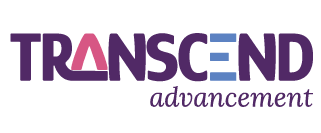Board & Volunteer Fundraising Training
Building a Stronger Fundraising Team
A nonprofit’s fundraising success isn’t just about the development staff—it requires an engaged board and dedicated volunteers who understand their role in fundraising. When board members and volunteers are properly trained and empowered, they can become passionate ambassadors, connectors, and fundraisers for your organization.
In this article, we’ll explore why fundraising training is essential, what your board and volunteers need to know, and how to turn them into confident fundraisers.
Why Fundraising Training Matters
Many board members and volunteers aren’t comfortable asking for money. Some may think it’s solely the staff’s responsibility, while others simply don’t know where to begin. But with the right training, they can:
Develop confidence in making donor asks.
Learn how to tell your nonprofit’s story effectively.
Understand the impact of their role in fundraising success.
Identify and cultivate potential donors in their own networks.
A well-trained team can make a significant difference in your fundraising results.
Key Elements of Fundraising Training for Boards and Volunteers
To transform your board and volunteers into effective fundraisers, your training should focus on the following key areas:
1. Understanding the Fundraising Cycle
Help them understand how fundraising works, from identifying prospects to stewarding donors after a gift. Cover these steps, as adapted from the Independent School Management Donor Cycle model (paywall):
Identify – How to find potential donors, from among existing constituents or from your extended network.
Engage – How to build relationships before asking for a gift.
Evaluate – How to assess whether a prospect is ready for a fundraising ask, what they would be interested in supporting, and how much to ask for.
Solicit – How to make an effective fundraising ask to this donor.
Recognize – How to celebrate and honor the generosity of this donor in a way that aligns with their motivation to give and the organization’s values.
Steward – How to continue the relationship with donors for long-term support and recognize that support goes well beyond their dollars given.
Identify – Not a mistake that this is listed again. This is the start of a whole new cycle! Each donor, while in the Steward phase, is ripe for re-identification for a future giving opportunity. Don’t forget to go through all the steps each time, lest you risk being seen as taking the donor for granted.
When your board and volunteers understand the full fundraising cycle, they can contribute at every stage, even if they’re not comfortable making direct asks.
2. Telling Your Nonprofit’s Story
People don’t give to organizations—they give to causes and impact. Your board and volunteers need to know:
The mission, vision, and values of your organization.
The key impact stories that illustrate your work.
How to explain why donations make a difference.
By training them to tell a compelling story, they can engage potential donors organically and authentically.
3. Making the Ask
One of the biggest fears board members and volunteers have is asking for money. Break down this fear by:
Teaching them how to make a warm introduction to a potential donor.
Providing scripts and role-playing exercises to build confidence.
Emphasizing that fundraising is about relationships, not just money.
Not every board member or volunteer needs to make a direct ask—but they should all feel comfortable facilitating connections that lead to funding.
4. Leveraging Their Networks
Board members and volunteers already know potential donors—they just don’t realize it. Show them how to:
Identify individuals in their personal and professional networks who may be interested in supporting the organization.
Host small fundraising events (such as house parties or virtual meet-ups) to introduce new donors to your mission.
Make peer-to-peer fundraising appeals through social media and personal outreach.
When they see how easy and natural fundraising can be, they’ll be more willing to participate.
Making Fundraising Training Ongoing
Fundraising training shouldn’t be a one-time event. Offer ongoing support and refresher sessions to keep board members and volunteers engaged. This could include:
Quarterly workshops on new fundraising trends.
Practice sessions for making asks and donor calls.
Recognition and incentives for board members and volunteers who help raise funds.
Let’s Build a Stronger Fundraising Team
At TRANSCEND Advancement, we offer customized fundraising training for boards and volunteers. Whether your team needs help with donor outreach, storytelling, or making direct asks, we can provide interactive and engaging workshops that build confidence and drive results. Ready to turn your board and volunteers into fundraising champions? Let’s put together a training session.
